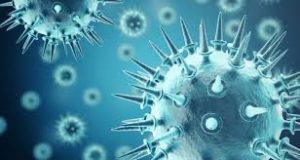These inborn leanings or attitudes can roughly be translated as follows.
- I am an excellent creature, a valuable part of the universe in which I exist.
- My existence enriches all other portions of life, even as my own being is enhanced by the rest of creation.
- It is good, natural, and safe for me to grow and develop and use my abilities, and by so doing I also enrich all other portions of life.
Next: I am eternally couched and supported by the universe of which I am a part, and I exist whether or not that existence is physically expressed.
Next: By nature I am a good deserving creature, and all of life’s elements and parts are also of good intent.
And next: All of my imperfections, and all of the imperfections of other creatures, are redeemed in the greater scheme of the universe in which I have my being.
Those attitudes are inbred in the smallest microscopic portions of the body — a part of each atom and cell and organ, and they serve to trigger all of the body’s responses that promote growth and fulfillment. Infants are not born with an inbred fear of their environment, or of the other creatures. They are instead immersed in feelings of well-being, vitality, and exuberance. They take it for granted that their needs will be met, and that the universe is well-disposed toward them. They feel a part of their environment.
They do not come into life with feelings of rage, or anger, and basically they do not experience doubts or fears. Birth is experienced in terms of self-discovery, and includes the sensation of selfhood gently rising and unfolding from the secret heart of the universe.
Many people believe that birth, to the contrary, is a time of trauma, or even of rage, as the infant leaves its mother’s womb. Birth is life’s most precious natural process. Even in births that are thought of as not “normal,” there is on the infant’s part a sense of discovery and joy.
We will have more to say about the process of birth in later blogs. For now, I simply want to make the point that in the most basic of terms the human birth is as orderly and spontaneous as the birth of any of nature’s creatures — and a child opens its selfhood even as a flower opens its petals.
The inborn leanings and attitudes that we have been discussing should ideally remain with us for the rest of our lives, leading us to express our abilities, and finding fulfillment as our knowledge expands through experience. The same feelings and beliefs should also ideally help us die with a sense of safety, support and assurance. While these inbred psychological supports never leave us entirely, they are often diminished by beliefs encountered later in life, that serve to undermine the individual’s sense of safety and well-being.
All of this talk about exuberance, health and vitality may seem quite beside the point to many. It may seem instead that the world is filled with unhappiness and disease.
I admit that this certainly seems to be the case. It may also strike you, my blog readers, as quite shocking when I tell you that there is no such thing, basically, as disease. There are instead only processes. What we think of as disease is instead the result of an exaggeration or overextension of perfectly normal body processes. We are not attacked by viruses, for instance, for all kinds of viruses exist normally in the body. There are no killer viruses, then, but viruses that go beyond their usual bounds. We will have more to say about such issues in later blogs — for I hope to show how certain feelings and beliefs do indeed promote health, while others promote an unfortunate extension or exaggeration of perfectly normal bodily processes, or viral activity.
This means, of course, that we do not fall victim to a disease, or catch a virus, but that for one reason or another our own feelings, thoughts, and beliefs lead us to seek bouts of illness.
Certainly, such ideas will sound like medical heresy to many of my blog readers, but the sooner we begin to look at health and “disease” in these new terms, the healthier and happier we will become. We are not one thing and illness another, for our thoughts and emotions are the triggers that lead to bouts of poor health. Once we know this, we can begin to take steps that will serve to promote exuberance and vitality instead of fear, doubts, and “disease.”
We will discover that so-called diseases perform certain services. They fulfill purposes for us that we may believe we can achieve in no other way. The reasons for such illnesses are not deeply buried in the subconscious, as we may think. They are much closer to the conscious mind, and usually consist of a series of seemingly innocuous decisions that we have made through the years. Other illnesses, of course, may be caused by sudden decisions that are a response to a particular event in our life.
People have been taught that their bodies are a kind of battleground, and that they must be in a constant state of readiness lest they be attacked or invaded by alien germs or viruses or diseases that can strike without warning.
Soon, in future blogs, we will begin to discuss other negative beliefs that cause poor health. For now, however, we will concentrate upon those inbred, positive attitudes, feelings, and beliefs that constantly improve our sense of well-being, strength, and fulfillment.














